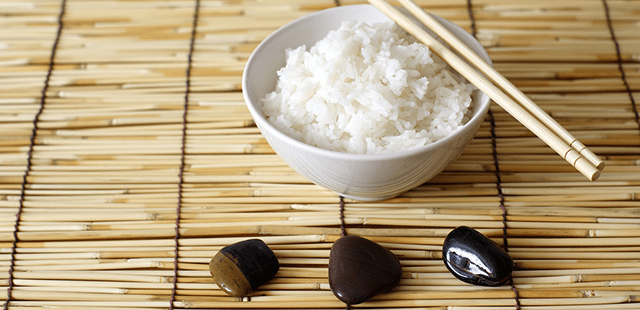
A monk told Joshu: “I have just entered the monastery. Please teach me.”
Joshu asked: “Have you eaten your rice porridge?”
The monk replied: “I have eaten.”
Joshu said: “Then you had better wash your bowl.”
At that moment the monk was enlightened.
This is a famous Zen story that I’ve come across many times. There are a lot of different interpretations of it but I thought I would share mine.
It’s the idea that you take care of the right things in the moment. Not later. Not tomorrow.
No, right now.
When you finish eating, you wash your bowl right away. When you finish writing on your computer, you close all your application windows. When you’re done working for the day, you clear your desk.
If you’ve been with us for a while you will notice that it’s very similar to our popular Clearing To Neutral habit. It’s when you clear things and set things up for next time, so you make it easy for your future-self to get started. This minimizes friction which makes it harder for procrastination to kick in.
When you make Clearing to Neutral habitual, you won’t ever have to worry about procrastination again. Maybe this mantra of “wash your bowl” will help.
The next time you’re about to finish something, just say “wash your bowl”. It’s catchy, easy to remember and it can act like a trigger to initiate your Clearing to Neutral habit.
This is one of my personal favorite productivity tips that I always share with others. Want more? Check out The AE Primer.

It's an old and great story, explanation is however is completely wrong. The idea behind zen stories is that when you consume enough you notice patterns pointing you somewhere that cannot be put in words nor explained. This explanation is poor attempt at appropriating a zen story to say something seemingly profound. Too intellectual.
This is an amazing zen story! So simple, yet so profound. The monk was seeking some sort of spiritual teaching from Joshu, to which he simply asked him whether he had eaten his rice porridge. When the monk told Joshu that he had indeed eaten, along comes the ‘punchline’ – “Then you had better wash your bowl.” At that moment the monk was enlightened. This story shows us that in concrete world of nature and reality, there is no ‘split’ or division between the ‘ordinary’ and mundane on the one hand and the ‘spiritual’ on the other. The reality is that EVERYTHING in life is spiritual. From washing dishes, to dancing, to making love, or sleeping. The simple awesomeness of Zen is the way in which a master is capable of completely and utterly shattering all dualities of the psyche and setting a human being free and as this story shows, it can happen ‘just like that’, right here, right now.
What I got from it was -if you do not wash your bowl you will not be prepared for what may come next. Whether you are hungry for food or having porridge representing feeding the soul with knowledge – and bowl representing life lessons.
💕
Or you know just basically be responsible for yourself. 🤷🏻♀️
Bowled over. Maybe there is only one bowl.
Too much analytical thinking gets in the way of understanding Joshu’s “go was your bowl.”
Joshu is telling the novice monk, to do what comes next, naturally. One thing at a time. With a clear, present mind, moving on to what’s next, with this same attentive mind. Just this: washing my bowl. Joshu is not just giving advice for the present moment, he is giving the novice monk an instruction to live by that applies to the dynamics of everyday life. For a lifetime.
Just do what comes next with undivided attention.
Mindful living is Joshu’s prescription. One task follows the next in life. Give each task undivided attention. Wash your bowl mindfully. Do what comes next with the same mind. When this is practiced, mindful living, one lives a fuller, more focused and happier life.
Joshu points to simplicity as the way. A spiritual
or inner life is nothing miraculous.
It’s just doing what comes next with full attention.
hmmmm…..I did not understand the story that way. What I understood is that, especially in Zen, The Ordinary and The Miraculous are one and the same. So when the student asked the master a question pertaining to the spiritual, the master responded with an answer pointing to the ordinary and everyday. I believe this is typical in Zen. For example:
A neighboring priest scolded his students for abandoning his school to study with Bankei, and yelled at Bankei, saying that his teacher could perform miracles such as walking on water and signing his name from the other side of a river. Bankei replied, “My miracle is that when I’m hungry, I eat, and when I am tired, I sleep.”
https://www.reddit.com/r/zen/comments/2enmd9/the_zen_tradition_of_misquoting_bankeis_miracle/
also:
“The spirituality found in Zen is not to think about God while peeling the potatoes; it is simply to peel the potatoes”
Alan Watts
This is a koan. It’s intended not to have a specific answer so as to convey the futility of logic.
Whenever I don’t stick to the “wash your bowl” policy, I end up with too many tasks and have a hard time finding my way back to efficiency.
Thank you for the reminder, Thanh!
I love this!
About a month ago I cleaned my entire apartment and got into the habit of putting things away immediately. No excuses. The habit has built up over time and I’ve gotten to a point where I don’t even have the urge to set things aside anymore!
Having this short little mantra should only strengthen this and help me apply this to other aspects of my life! So thanks!
Thank you :) . A great reminder.